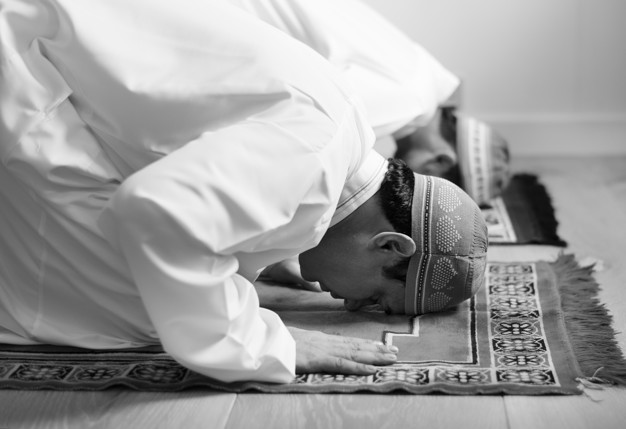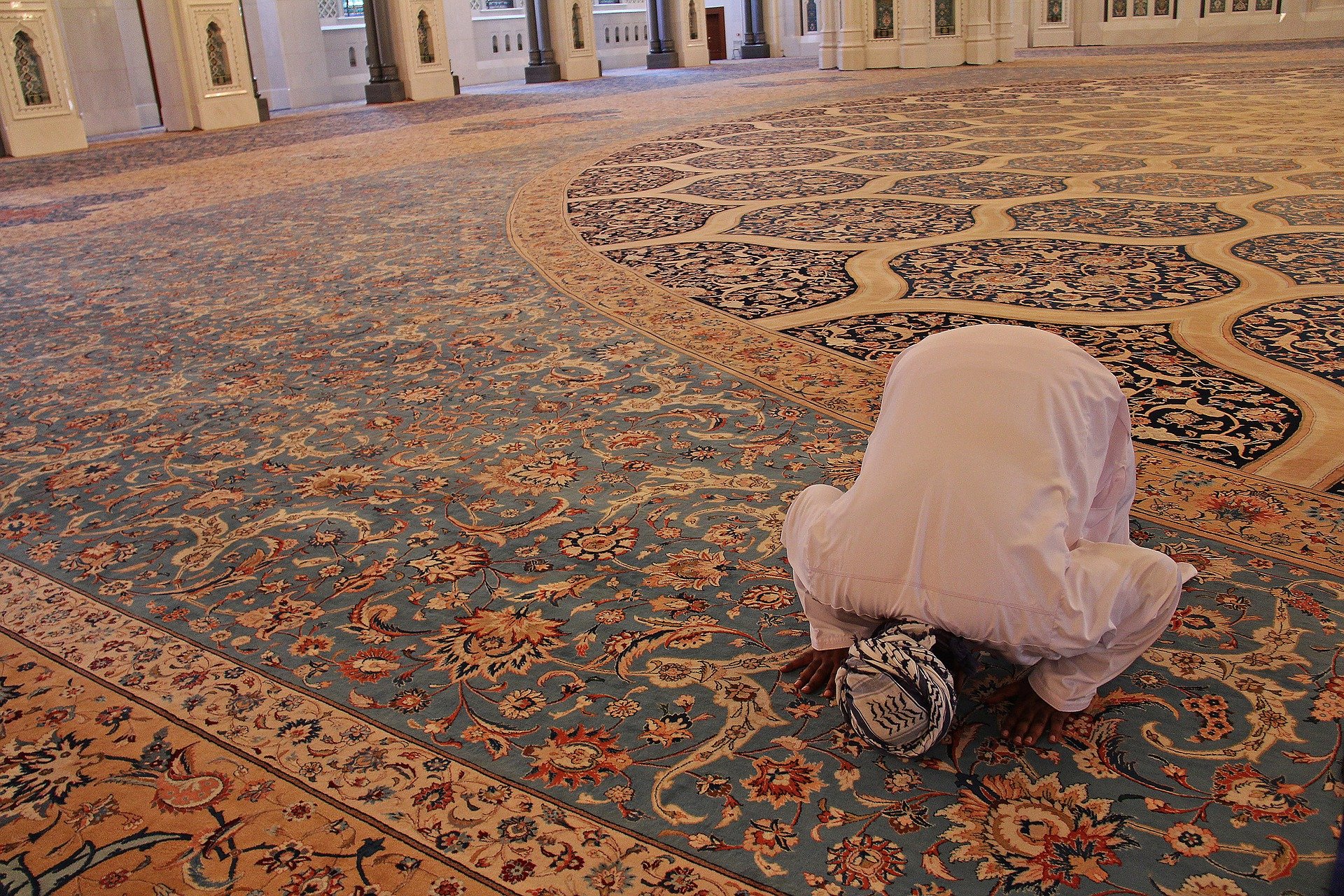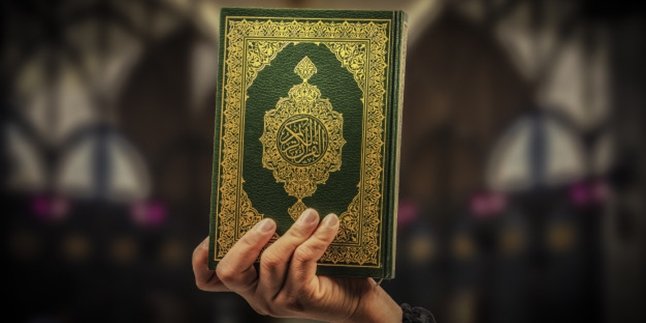Kapanlagi.com - Every Muslim is commanded to perform prayer. Because of the importance of this prayer command, it is even explained several times in the Quran. Therefore, the meaning of prayer for a Muslim is very important.
The meaning of prayer is related to the worship practices carried out by Muslims. There are requirements, pillars, time, and special procedures for performing prayer. Meanwhile, there are two types of prayer seen based on their law, namely obligatory prayer and sunnah prayer. The meaning of obligatory prayer can be called five-time prayers or fardhu prayers.
READ ALSO: Understanding Prayer According to Language and How to Perform It
Regardless, there are many virtues that a Muslim can obtain by performing the prayer command. Moreover, prayer is mentioned in a Quranic verse as a helping deed in the hereafter.
To find out more about the meaning of prayer, let's just take a look at the following review. The following is the meaning of prayer that you need to know, which has been compiled by kapanlagi.com from various sources.
1. The Meaning of Prayer for a Muslim

(credit: freepik.com)
The meaning of prayer is included in the second pillar of Islam. As it is known, there are five pillars of Islam. The first is to say the two testimonies of faith. The second is to establish prayer, the third is to pay zakat, the fourth is to fast in the month of Ramadan, and the fifth is to perform Hajj for those who are able.
But do you already know what prayer means for a Muslim? Before discussing the meaning of prayer, let's first understand the definition of prayer. The definition of prayer, if referring to the Indonesian Dictionary (KBBI), is worship to Allah SWT in which prayer is a mandatory worship that must be performed by every Muslim according to certain conditions, pillars, and readings starting with takbir and ending with salam. The meaning of prayer can also be said to be a prayer to Allah SWT.
The meaning of prayer in that language is taken from the word yushalli shalaatan which means prayer. A similar thing was also expressed by Sheikh Syamsidin abu Abdillah in his book explaining that the meaning of prayer is a prayer. Meanwhile, a nearly similar opinion was also written by Abdul Aziz Salim Basyarahil in his book stating that the meaning of prayer is worship consisting of special movements starting with takbir and ending with salam.
Because performing prayer is followed by a number of specific procedures and performances that contain a number of readings ranging from remembrance, recitation, prostration, tasbih, takbir, or prayer. The command to perform prayer for a Muslim is also mentioned in several verses of the Quran. Whether it explains mandatory prayer or sunnah prayer. That is the explanation of the meaning of prayer that needs to be known.
2. The Law and Types of Prayer

(credit: freepik.com)
Performing prayer for a Muslim is very important, especially if it is obligatory. It can also be said that the meaning of prayer is a form of obedience of a servant to Allah SWT. Through prayer, a Muslim can communicate with his Lord which includes recitation of dhikr, supplication, recitation of Quran, and others.
It is also known that the first deed to be accounted for on the Day of Judgment according to several hadiths is prayer. Such as the hadith of Prophet Muhammad SAW narrated by Abu Hurairah ra,
"Verily, the first deed to be accounted for on the Day of Judgment for a servant is his prayer. If it is good, then he has succeeded, and if it is bad, then he has failed. If anything is lacking from his obligatory prayers, the Lord will say: "See if My servant has any voluntary prayers." Then, the obligatory prayers will be completed with the voluntary prayers." Then, the same goes for all his deeds." (HR.Tirmidzi and An Nasa'i)
Meanwhile, prayer is divided into two types based on its ruling, namely obligatory prayer and voluntary prayer. Where the ruling of obligatory prayer is that if a Muslim leaves it, he will get a sin, and if he performs it, he will get a lot of rewards.
While the ruling of voluntary prayer can be interpreted that if a Muslim performs it, he will get rewards, and if he does not perform it, he will not get a sin. In addition, obligatory prayer and voluntary prayer consist of several types of prayer worship. Some of the types of obligatory and voluntary prayers can be seen below.
Types of obligatory prayer (fard prayer):
- Fajr prayer.
- Dhuhr prayer.
- Asr prayer.
- Maghrib prayer.
- Isha' prayer.
Types of voluntary prayer:
- Sunnah Muakkadah prayer is a recommended prayer to be performed. Among them are the Witr Sunnah prayer, the Eid al-Fitr prayer.
- Sunnah Ghairu Muakkadah prayer is a recommended voluntary prayer, but not like the Rawatib Sunnah prayer. Sunnah Ghairu Muakkadah prayer is performed at specific times, for example, the eclipse prayer.
- Munfarid voluntary prayer is a prayer that is performed individually. Among them are Tahajud prayer, tasbih prayer, repentance prayer.
- Sunnah prayers in congregation are performed in congregation, for example Tarawaih prayer, eclipse prayer, and others.
3. The Virtue of Prayer

(credit: freepik.com)
There are many virtues of prayer that a Muslim can obtain. Both obligatory and voluntary prayers contain extraordinary virtues. One of them is regarding the virtue of praying on time, which contains many virtues as follows.
1. Erasing past sins. This is in accordance with the narration that says that the Prophet Muhammad (peace be upon him) said,
"Truly, a Muslim servant, when he performs prayer with sincerity for Allah, then his sins will fall away like the fall of leaves from a tree" (HR. Ahmad).
2. Obtaining the reward of paradise according to the narration by Abu Daud from Abu Qatadah bin Rib'iy who said that the Prophet Muhammad said,
"Allah SWT says: "Verily, I have obligated the five daily prayers upon your nation, and I promise whoever guards their timings, I will enter them into paradise, and whoever does not guard them, then he will not receive what I have promised."
3. Obtaining peace and tranquility of the soul.
4. Becoming a light and shining on the Day of Judgment.
5. Obtaining many rewards of goodness.
6. Obtaining nine kinds of nobility.
4. Procedures for Performing Prayer

(credit: pixabay.com)
Meanwhile, after knowing the meaning of prayer, understand also how to perform prayer. Because there are several procedures for performing prayer that need to be known. Both sunnah and fardhu prayers have requirements, pillars, and a number of rak'ahs that need to be performed. Well, here is the procedure for performing prayer:
- Take wudu first.
- Read the prayer intention.
- Takbiratul ihram.
- Read the iftitah prayer.
- Read Surah Al-Fatihah.
- Read a short Surah in the Quran.
- Perform rukuk.
- Perform i'tidal.
- Sujud.
- Sit between two sujuds.
- Second sujud.
- Tasyahud awal.
- Stand.
- Can perform several previous procedures again according to the prayer rak'ah to be performed. Then in the last rak'ah, end with the final tasyahud.
- Then say salam.
That is an explanation of the meaning of prayer that you need to understand. Hopefully, it can make it easier for you to perform the prayer.
(kpl/gen/nlw)
Disclaimer: This translation from Bahasa Indonesia to English has been generated by Artificial Intelligence.
















